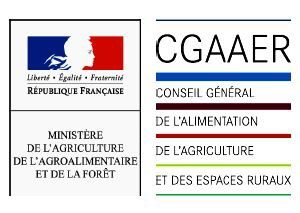Document type: Report n°21057 of the French Conseil Général de l'Alimentation, de l'Agriculture et des Espaces Ruraux (CGAAER)
Authors: Loïc Evain, Marie-Frédérique Parant
Preview: This benchmarking mission is intended to help the French Ministry of Agriculture and Food (MAA) to develop a new national strategy and to prepare the negotiations that will feed into the revision of the European Union (EU) legislation on animal welfare (AW). It is intended to provide the groundwork for a second mission entrusted to the Conseil Général de l'Alimentation, de l'Agriculture et des Espaces Ruraux (CGAAER) to establish a roadmap in partnership with the central administrative directorates.
Eleven EU Member States (MS) and five Third Countries (TC) responded to a questionnaire on the main issues of interest to France. The responses are discussed in seven chapters which can be summarised as follows:
1. The European institutions assign a high priority level to AW, moving towards the legislative package announced for the end of 2023 by the Commission in its "Farm to Fork" strategy. Although few Member States have adopted a national AW strategy in the way that France has, all have specific laws and regulations and a designated administrative body to address this issue, which is unanimously viewed as sensitive, despite a number of differences of approach by Eastern and Southern countries. Some Member States have even taken the step of going further than the EU legislation, which is considered to be insufficient in certain areas (painful practices, consumer information). [...]
2. The end of caged farming announced by the Commission is greeted with some caution by the Member States, who insist on the need for impact studies, financial support and transition periods to ensure that economic activity can continue [...].
Painful practices are also the subject of much attention and anaesthesia is the rule in many cases, particularly for the castration of piglets. Some MSs and TCs are working on alternatives (e.g., immunocastration, genetic selection). Similarly, the crushing of chicks, which Germany and France have decided to ban from 2022, is being questioned in many MS, who are also looking for alternatives. We should note the promising development in Sweden of a method where ovosexing can be carried out early enough for male eggs to be integrated directly into the food supply.
3. Consumers often express themselves ready to pay more for products from farms that show greater respect for AW, identifiable through a particular food label. Everywhere, a wealth of initiatives can be encountered, often driven by private companies but sometimes as part of national schemes, that are intended to encourage the development of standards that go beyond EU regulations or to make good any gaps, as is the case for some TCs. In December 2020, the Council of Ministers for Agriculture asked the Commission to prepare the framework for a harmonised and voluntary European AW label. All the countries in the survey insisted on this last characteristic.
Furthermore, there is a consensus on the fact that the AW label should not be required for high-end production systems (other than for organic farming) or for other products formally designated for their geographical origin.
4. While there is a consensus to strengthen the rules on transport (especially during heatwaves) and, above all, to better harmonise the implementation of existing rules, there is currently none on the banning of the transport of animals over long distances to TCs. Whatever the case, there will be strong pressure to act and to act quickly, as the report of the Parliament's committee of enquiry is expected in December 2021. Mobile abattoirs are still in their infancy in Europe, whereas quite a few units are in operation in the USA and Brazil, but this is in response to considerations that are more economic (considerable distances between farming and slaughter locations) than they are societal.
5. All respondents agree that the cost of AW should be borne by the entire industry and not just the livestock sector. [...] MSs agree that competition from imported products is a problem that FTAs fail to solve, but their motivation levels for change vary. The Inter-Institutional Declaration of 28 June is probably a step towards further import requirements; this would appear to be confirmed by the Commission in its publication on cages. The multilateral framework also needs to be looked at, in particular the World Trade Organisation's (WTO's) SPS1 Agreement, where several Member States would like to see AW included alongside animal health, to which it is closely linked, especially given the fact that it is the World Organisation for Animal Health (OIE) that draws up international standards in both areas. However, TCs are not exactly on the same wavelength here. [...]
6. Some MSs want to harmonise the rules on trade and identification of domestic carnivores. Internet sales are regulated in some MSs and TCs through licencing systems, agreements with platforms, or even a ban on trade for profit. The French project to create a "certificate of commitment and knowledge" arouses no particular interest.
7. There is disparity in the regulations that apply to sport and leisure equidae, ranging from the simple application of livestock regulations to specific texts produced either by government or equestrian groups. There is no demand for harmonisation in trade, identification or painful practices.






